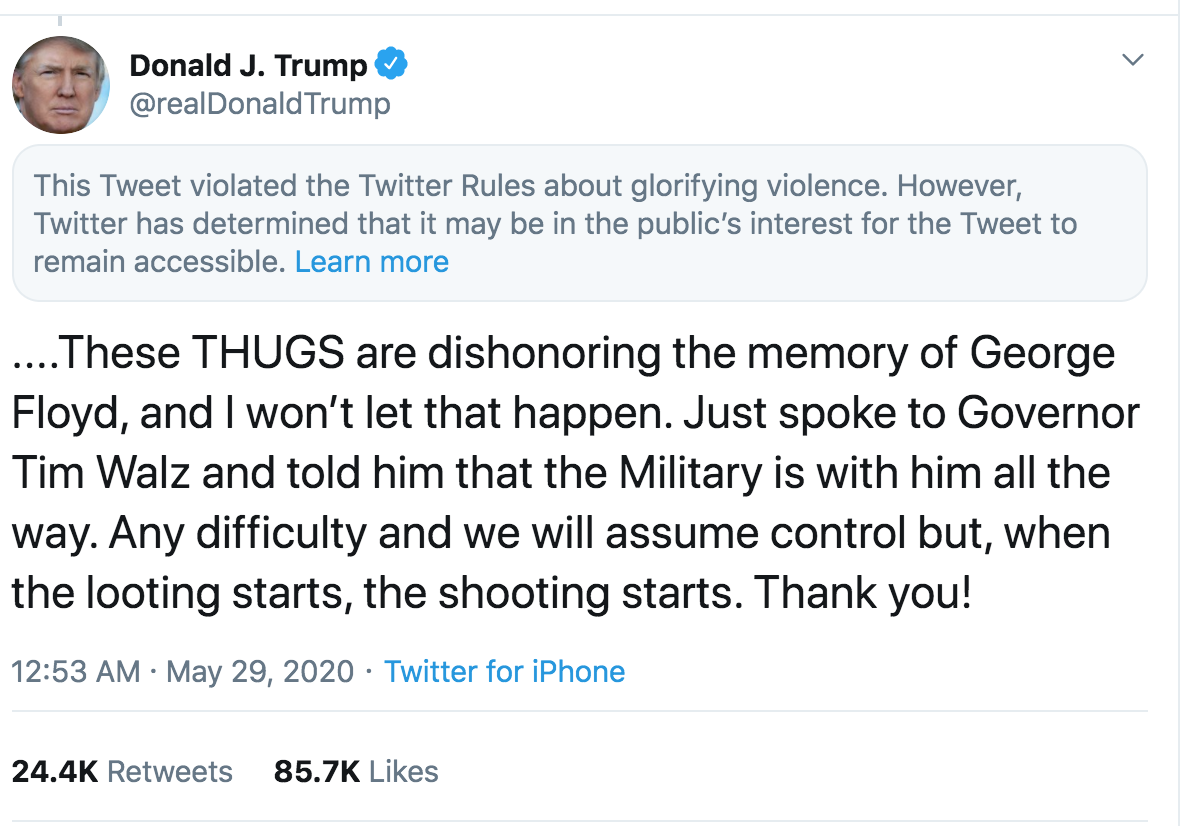
As protestors in Minneapolis denounced the murder of George Floyd, an African American man, by a white police officer who pressed his knee into Floyd’s neck for five minutes despite his protests that he couldn’t breathe, and as protests spread across the rest of the country over police killings of black people, and as a team of CNN journalists was arrested on live TV as they covered the Minneapolis protests — and as the number of people in the United States who have died of COVID-19 surpassed 100,000 — Trump tweeted.
At 12:53 AM on Friday morning, the President of the United States wrote that protestors should be shot. “When the looting starts, the shooting starts,” he wrote. “Thank you!” It was certainly not the first time that Trump has tweeted something vile, but for the first time, Twitter did something about it: The company added a warning to the tweet and prevented users from liking it or sharing it without adding a comment.

We've taken action in the interest of preventing others from being inspired to commit violent acts, but have kept the Tweet on Twitter because it is important that the public still be able to see the Tweet given its relevance to ongoing matters of public importance.
— Twitter Comms (@TwitterComms) May 29, 2020
As is standard with this notice, engagements with the Tweet will be limited. People will be able to Retweet with Comment, but will not be able to Like, Reply or Retweet it. https://t.co/V3T521zjnj
— Twitter Comms (@TwitterComms) May 29, 2020
The White House then tweeted the same tweet from its own account — and Twitter flagged that one for glorifying violence, too.
Earlier in the week, Twitter had added fact-checks to Trump tweets about mail-in ballots for the first time.
“The company needed to do what’s right, and we knew from a comms perspective that all hell would break loose,” Brandon Borrman, Twitter’s VP of global communications, told Will Oremus at Medium’s OneZero.
Trump on Thursday signed an executive order attempting to limit the power of social media companies. It was “a very, very clear piece of political theater” that could not be legally binding, law professor Kate Klonick told NPR.
New legal explainer: cutting through the rhetoric and spin about what the Trump executive order targeting Twitter and other social media actually does, and why its central feature is probably a legal dud https://t.co/fQw7JqocEC
— Charlie Savage (@charlie_savage) May 28, 2020